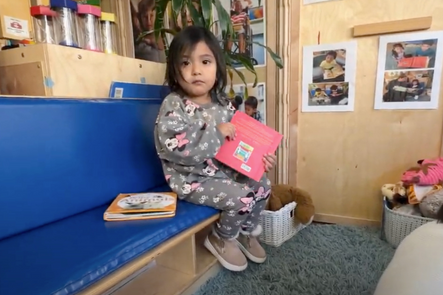Transforming Futures: Addressing the Impacts of Homelessness on Young Children
- Claudia Taylor
- Aug 21, 2024
- 2 min read
Updated: Aug 22, 2024
Every year, thousands of children in California confront the brutal reality of homelessness, a situation that can profoundly affect their development and future prospects. In 2024, the Point-in-Time count identified at least 2,493 youth experiencing homelessness in San Francisco alone. The consequences of homelessness on children can be both immediate and long-lasting, affecting their day-to-day lives and shaping their futures well into adulthood. The impacts can be particularly severe for young children, especially those under five, who are in the critical stages of developing essential cognitive and social-emotional skills. Homelessness is correlated with an increased risk of developmental delays, illness, and emotional and behavioral challenges in young children.
Thoughtful early intervention is needed to create safe and stable environments where these vulnerable children can receive the support they need to thrive and prepare for life’s challenges.
Barriers to Early Childhood Education for Homeless Families

Beyond helping families find housing to provide a more stable environment for their children, it is critical during these fundamental early childhood years that children who experience homelessness receive high-quality childcare and education so they do not fall further behind their peers. Quality childhood education programs can improve outcomes by reducing the achievement gap and positioning children to be ready to enter school, learn, and succeed.
However, accessing appropriate services to assess and address the unique needs of children, especially those with developmental delays or special needs, is often incredibly challenging and cost-prohibitive for homeless and at-risk families. Limited transportation options for appointments, time off work to take children to appointments or to meet with childcare providers, no consistent mailing address, a lack of access to internet and email, language barriers, and more, all cause additional challenges for homeless children and their parents looking to secure early childhood care and education.
Solutions and the Role of Compass Children’s Center
Compass Children’s Center (CCC) provides critical solutions to some of these barriers. Located in the heart of the Tenderloin, where many homeless or at-risk families reside, CCC has developed a holistic approach to early education, collaborating with school districts, therapists, and a dedicated on-site speech language pathologist to identify and address the unique needs of each child. CCC has invested in spaces like the gross-motor-skills playroom and outdoor, rooftop playground to help give the children a safe space to learn, grow, and achieve important developmental milestones. Additionally, we provide therapeutic shadowing through our Compass Behavioral Health Services program to support any student who is having significant behavioral challenges to help them learn more productive behaviors.

Currently, approximately 40% of CCC students have special needs. This is an alarmingly high number and shows the level of support needed to help these children be kindergarten ready upon graduation. In addition to our Bilingual Speech Language Pathologist, we are currently hiring for a dedicated Special Educator and are working on a plan to add an Occupational Therapist in order to provide our kids with the full spectrum of support that they truly need.
While programs like CCC offer valuable support, comprehensive efforts are needed to tackle the root causes of homelessness and ensure access to high-quality early childhood education for all homeless families.
Learn more about CCC and their new speech-language services in our FY 2022-2023 Annual Report.



